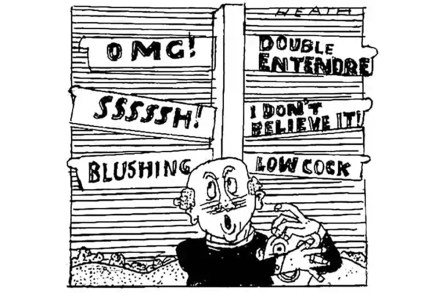Where does ‘stuff’ come from?
Pelham, the hero of the novel of the same name (which came out in 1828, the first year of The Spectator’s existence), visiting his old friend Glanville, is conducted by ‘the obsequious and bowing valet’ into a room where his host sits ‘opposite to a toilet of massive gold’. (Yes, words change meaning. This toilet would not have resembled the lavatory of gold on display at Blenheim Palace, to the theft of which a man has pleaded guilty.) The narrator declares: ‘I had never seen so perfect a specimen of masculine beauty.’ The anonymous reviewer in The Spectator attributed the book to Benjamin Disraeli. He was wrong. It was by





















